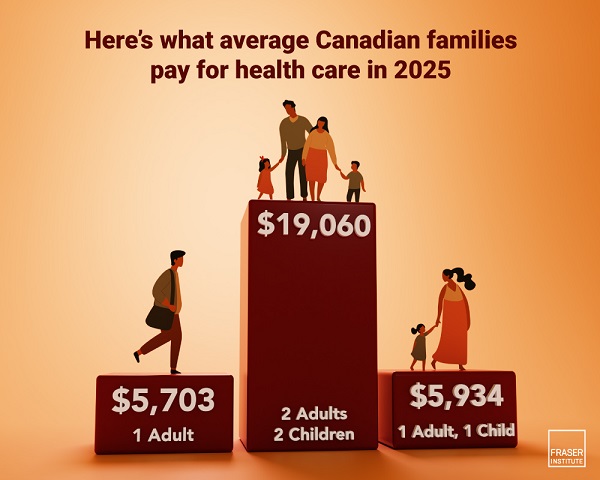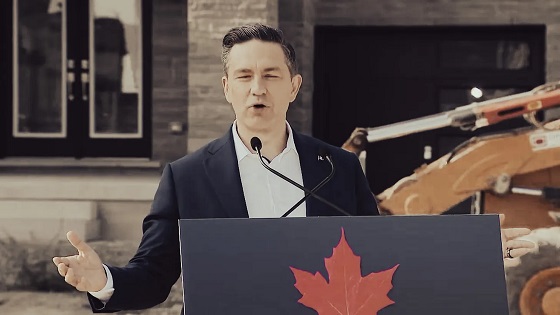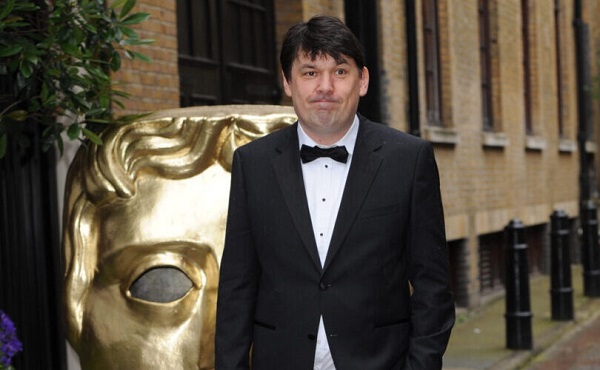Alberta
Canada’s health-care wait times hit 27.7 weeks in 2023—longest ever recorded

From the Fraser Institute
By Mackenzie Moir and Bacchus Barua
Canadian patients waited longer than ever this year for medical treatment, finds a new study released by the Fraser Institute, an independent, non-partisan Canadian public policy think-tank.
The study, an annual survey of physicians across Canada, reports a median wait time of 27.7 weeks—the longest ever recorded, longer than the wait of 27.4 weeks reported in 2022—and 198 per cent higher than the 9.3 weeks Canadians waited in 1993, when the Fraser Institute began tracking wait times.

“COVID-19 and related hospital closures have exacerbated, but are not the cause, of Canada’s historic wait times challenges,” said Bacchus Barua, director of the Fraser Institute’s Centre for Health Policy Studies and co-author of Waiting Your Turn: Wait Times for Health Care in Canada, 2023.
“Previous results revealed that patients waited an estimated 20.9 weeks for medically necessary elective care in 2019—long before the pandemic started.”
The study examines the total wait time faced by patients across 12 medical specialties from referral by a general practitioner (i.e. family doctor) to consultation with a specialist, to when the patient ultimately receives treatment.
More than 1,200 responses were received across the 12 specialties and 10 provinces. Among the provinces, Ontario recorded the shortest wait time at 21.6 weeks—still up from 20.3 weeks in 2022. Nova Scotia recorded the longest wait time in Canada at 56.7 weeks.
Among the various specialties, national wait times were longest between a referral by a GP and plastic (52.4 weeks), orthopedic (44.3) neurosurgery (43.5). Wait times were shortest for radiation (4.4 weeks) and medical oncology treatments (4.8 weeks). Patients also experience significant waiting times for various diagnostic technologies. This year, Canadians could expect to wait 6.6 weeks for a computed tomography (CT) scan, 12.9 weeks for a magnetic resonance imaging (MRI) scan, and 5.3 weeks for an ultrasound.
Crucially, physicians report that their patients are waiting over four and a half weeks longer for treatment (after seeing a specialist) than what they consider to be clinically reasonable.
“Excessively long wait times remain a defining characteristic of Canada’s health-care system” said Mackenzie Moir, Fraser Institute policy analyst and co-author of the report. “And they aren’t simply minor inconveniences, they can result in increased suffering for patients, lost productivity at work, a decreased quality of life, and in the worst cases, disability or death.”
Median wait times by province (in weeks)
PROVINCE 2022 2023
British Columbia 25.8 27.7
Alberta 33.3 33.5
Saskatchewan 30.1 31.0
Manitoba 41.3 29.1
Ontario 20.3 21.6
Quebec 29.4 27.6
New Brunswick 43.3 52.6
Nova Scotia 58.2 56.7
P.E.I. 64.7 55.2
Newfoundland and Labrador 32.1 33.3

Each year, the Fraser Institute surveys physicians across twelve specialties and the ten provinces in order to document the queues for visits to specialists and for diagnostic and surgical procedures in Canada. Waiting Your Turn: Wait Times for Health Care in Canada, 2023 Report reports the results of this year’s survey.
In 2023, physicians report a median wait time of 27.7 weeks between a referral from a general practitioner and receipt of treatment. This represents the longest delay in the survey’s history and is 198% longer than the 9.3 weeks Canadian patients could expect to wait in 1993.
Overall, Ontario reports the shortest wait across Canada (21.6 weeks) while Nova Scotia had the longest (56.7 weeks).
The 27.7 week total wait time that patients face can be examined in two consecutive segments:
- referral by a general practitioner to consultation with a specialist: 14.6 weeks;
- consultation with a specialist to receipt of treatment: 13.1 weeks.
After seeing a specialist, Canadian patients were waiting 4.6 weeks longer than what physicians consider clinically reasonable (8.5 weeks).
Across the ten provinces, the study also estimates that there were 1,209,194 procedures for which patients—3% of the Canadian population—were waiting in 2023.
Patients also face considerable delays for diagnostic technology. This year, Canadians could expect to wait 6.6 weeks for a CT scan, 12.9 for an MRI scan, and 5.3 weeks for an ultrasound.
Survey results suggest that, despite provincial strategies to reduce wait times, Canadian patients continue to wait too long for medically necessary treatment.
Data were collected from the week of January 16 to July 1, 2023, longer than the period of collection in years before the COVID19 pandemic. A total of 1,269 responses were received across the 12 specialties surveyed. However, this year’s response rate was 10.3% (lower than in some previous years). As a result, the findings in this report should be interpreted with caution.
Research has repeatedly indicated that wait times for medically necessary treatment are not benign inconveniences. Wait times can, and do, have serious consequences such as increased pain, suffering, and mental anguish. In certain instances, they can also result in poorer medical outcomes—
transforming potentially reversible illnesses or injuries into chronic, irreversible conditions, or even permanent disabilities. In many instances, patients may also have to forgo their wages while they wait for treatment, resulting in an economic cost to the individuals themselves and the economy in general.
The results of this year’s survey indicate that despite provincial strategies to reduce wait times and high levels of health expenditure, it is clear that patients in Canada continue to wait too long to receive medically necessary treatment.
Waiting Your Turn: Wait Times for Health Care in Canada, 2023 Report
By Mackenzie Moir and Bacchus Barua, with Hani Wannamaker
www.fraserinstitute.org
Authors:
Alberta
Equalization program disincentivizes provinces from improving their economies

From the Fraser Institute
By Tegan Hill and Joel Emes
As the Alberta Next Panel continues discussions on how to assert the province’s role in the federation, equalization remains a key issue. Among separatists in the province, a striking 88 per cent support ending equalization despite it being a constitutional requirement. But all Canadians should demand equalization reform. The program conceptually and practically creates real disincentives for economic growth, which is key to improving living standards.
First, a bit of background.
The goal of equalization is to ensure that each province can deliver reasonably comparable public services at reasonably comparable tax rates. To determine which provinces receive equalization payments, the equalization formula applies a hypothetical national average tax rate to different sources of revenue (e.g. personal income and business income) to calculate how much revenue a province could generate. In theory, provinces that would raise less revenue than the national average (on a per-person basis) receive equalization, while province’s that would raise more than the national average do not. Ottawa collects taxes from Canadians across the country then redistributes money to these “have not” provinces through equalization.
This year, Ontario, Quebec, Manitoba and all of Atlantic Canada will receive a share of the $26.2 billion in equalization spending. Alberta, British Columbia and Saskatchewan—calculated to have a higher-than-average ability to raise revenue—will not receive payments.
Of course, equalization has long been a contentious issue for contributing provinces including Alberta. But the program also causes problems for recipient or “have not” provinces that may fall into a welfare trap. Again, according to the principle of equalization, as a province’s economic fortunes improve and its ability to raise revenues increases, its equalization payments should decline or even end.
Consequently, the program may disincentivize provinces from improving their economies. Take, for example, natural resource development. In addition to applying a hypothetical national average tax rate to different sources of provincial revenue, the equalization formula measures actual real-world natural resource revenues. That means that what any provincial government receives in natural resource revenue (e.g. oil and hydro royalties) directly affects whether or not it will receive equalization—and how much it will receive.
According to a 2020 study, if a province receiving equalization chose to increase its natural resource revenues by 10 per cent, up to 97 per cent of that new revenue could be offset by reductions in equalization.
This has real implications. In 2018, for instance, the Quebec government banned shale gas fracking and tightened rules for oil and gas drilling, despite the existence of up to 36 trillion cubic feet of recoverable natural gas in the Saint Lawrence Valley, with an estimated worth of between $68 billion and $186 billion. Then in 2022, the Quebec government banned new oil and gas development. While many factors likely played into this decision, equalization “claw-backs” create a disincentive for resource development in recipient provinces. At the same time, provinces that generally develop their resources—including Alberta—are effectively punished and do not receive equalization.
The current formula also encourages recipient provinces to raise tax rates. Recall, the formula calculates how much money each province could hypothetically generate if they all applied a national average tax structure. Raising personal or business tax rates would raise the national average used in the formula, that “have not” provinces are topped up to, which can lead to a higher equalization payment. At the same time, higher tax rates can cause a decline in a province’s tax base (i.e. the amount of income subject to taxes) as some taxpayers work or invest less within that jurisdiction, or engage in more tax planning to reduce their tax bills. A lower tax base reduces the amount of revenue that provincial governments can raise, which can again lead to higher equalization payments. This incentive problem is economically damaging for provinces as high tax rates reduce incentives for work, savings, investment and entrepreneurship.
It’s conceivable that a province may be no better off with equalization because of the program’s negative economic incentives. Put simply, equalization creates problems for provinces across the country—even recipient provinces—and it’s time Canadians demand reform.
Alberta
Provincial pension plan could boost retirement savings for Albertans

From the Fraser Institute
By Tegan Hill and Joel Emes
In 2026, Albertans may vote on whether or not to leave the Canada Pension Plan (CPP) for a provincial pension plan. While they should weigh the cost and benefits, one thing is clear—Albertans could boost their retirement savings under a provincial pension plan.
Compared to the rest of Canada, Alberta has relatively high rates of employment, higher average incomes and a younger population. Subsequently, Albertans collectively contribute more to the CPP than retirees in the province receive in total CPP payments.
Indeed, from 1981 to 2022 (the latest year of available data), Alberta workers paid 14.4 per cent (annually, on average) of total CPP contributions (typically from their paycheques) while retirees in the province received 10.0 per cent of the payments. That’s a net contribution of $53.6 billion from Albertans over the period.
Alberta’s demographic and income advantages also mean that if the province left the CPP, Albertans could pay lower contribution rates while still receiving the same retirement benefits under a provincial pension plan (in fact, the CPP Act requires that to leave CPP, a province must provide a comparable plan with comparable benefits). This would mean Albertans keep more of their money, which they can use to boost their private retirement savings (e.g. RRSPs or TFSAs).
According to one estimate, Albertans’ contribution rate could fall from 9.9 per cent (the current base CPP rate) to 5.85 per cent under a provincial pension plan. Under this scenario, a typical Albertan earning the median income ($50,000 in 2025) and contributing since age 18, would save $50,023 over their lifetime from paying a lower rate under provincial pension plan. Thanks to the power of compound interest, with a 7.1 per cent (average) nominal rate of return (based on a balanced portfolio of investments), those savings could grow to nearly $190,000 over the same worker’s lifetime.
Pair that amount with what you’d receive from the new provincial pension plan ($265,000) and you’d have $455,000 in retirement income (pre-tax)—nearly 72 per cent more than under the CPP alone.
To be clear, exactly how much you’d save depends on the specific contribution rate for the new provincial pension plan. We use 5.85 per cent in the above scenario, but estimates vary. But even if we assume a higher contribution rate, Albertan’s could still receive more in retirement with the provincial pension plan compared to the current CPP.
Consider the potential with a provincial pension contribution rate of 8.21 per cent. A typical Albertan, contributing since age 18, would generate $330,000 in pre-tax retirement income from the new provincial pension plan plus their private savings, which is nearly one quarter larger than they’d receive from the CPP alone (again, $265,000).
Albertans should consider the full costs and benefits of a provincial pension plan, but it’s clearly Albertans could benefit from higher retirement income due to increased private savings.
-

 Business2 days ago
Business2 days agoHealth-care costs for typical Canadian family will reach over $19,000 this year
-

 Crime2 days ago
Crime2 days agoConservative speaker and celebrity Charlie Kirk shot during Q & A event at Utah Valley University
-

 Business2 days ago
Business2 days agoPoilievre: “Carney More Irresponsible Than Trudeau” as Housing, Jobs, and Energy Failures Mount
-

 Alberta2 days ago
Alberta2 days agoProvince urging post secondary students to apply for loans, grants, scholarships, bursaries and awards
-

 Crime1 day ago
Crime1 day agoCharlie Kirk ASSASSINATED
-

 Energy2 days ago
Energy2 days agoCarney government should undo Trudeau’s damaging energy policies
-

 Opinion1 day ago
Opinion1 day agoThe Charlie Kirk I Knew
-

 Alberta18 hours ago
Alberta18 hours agoAlberta deserves a police force that actually reflects its values











